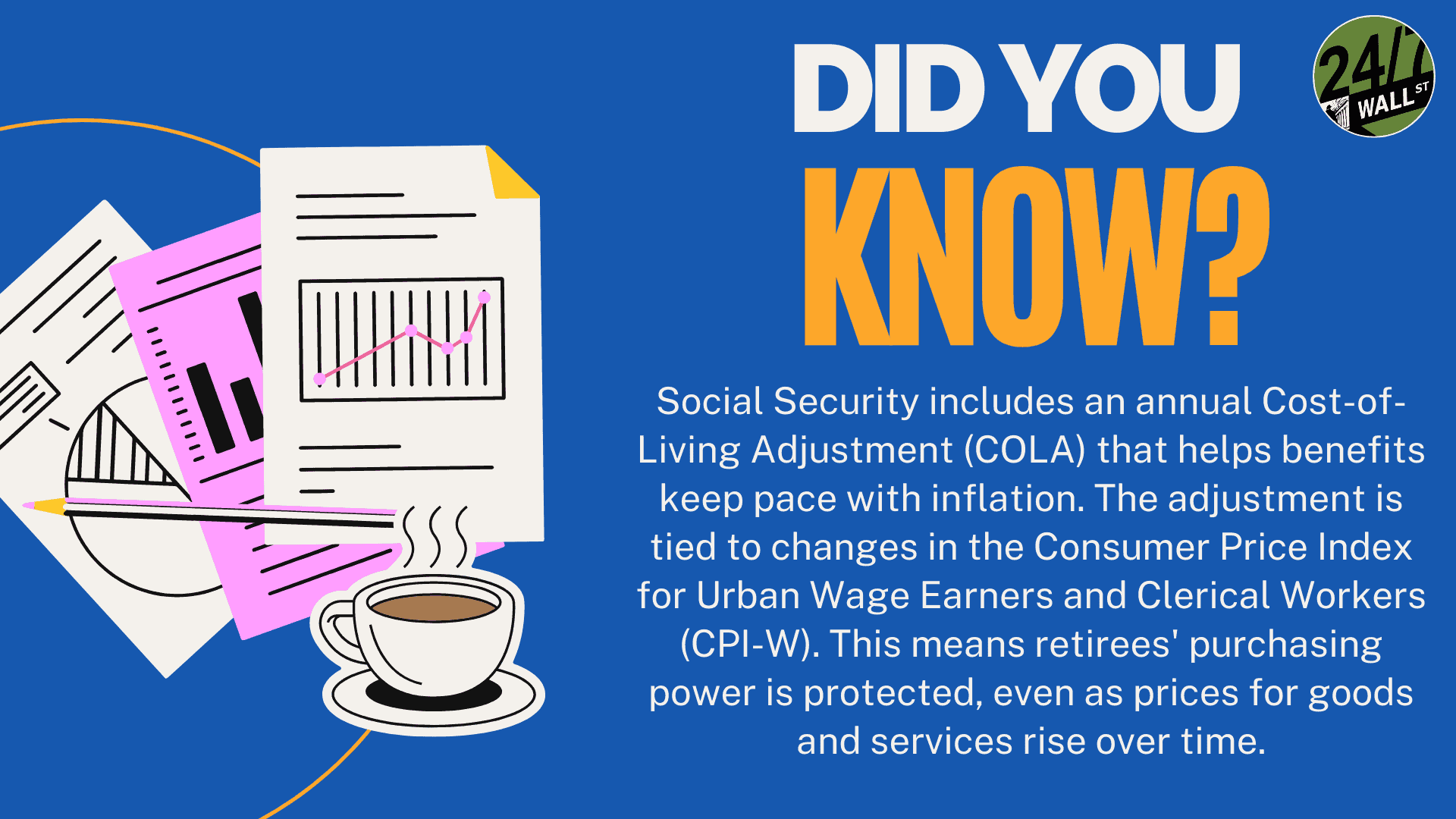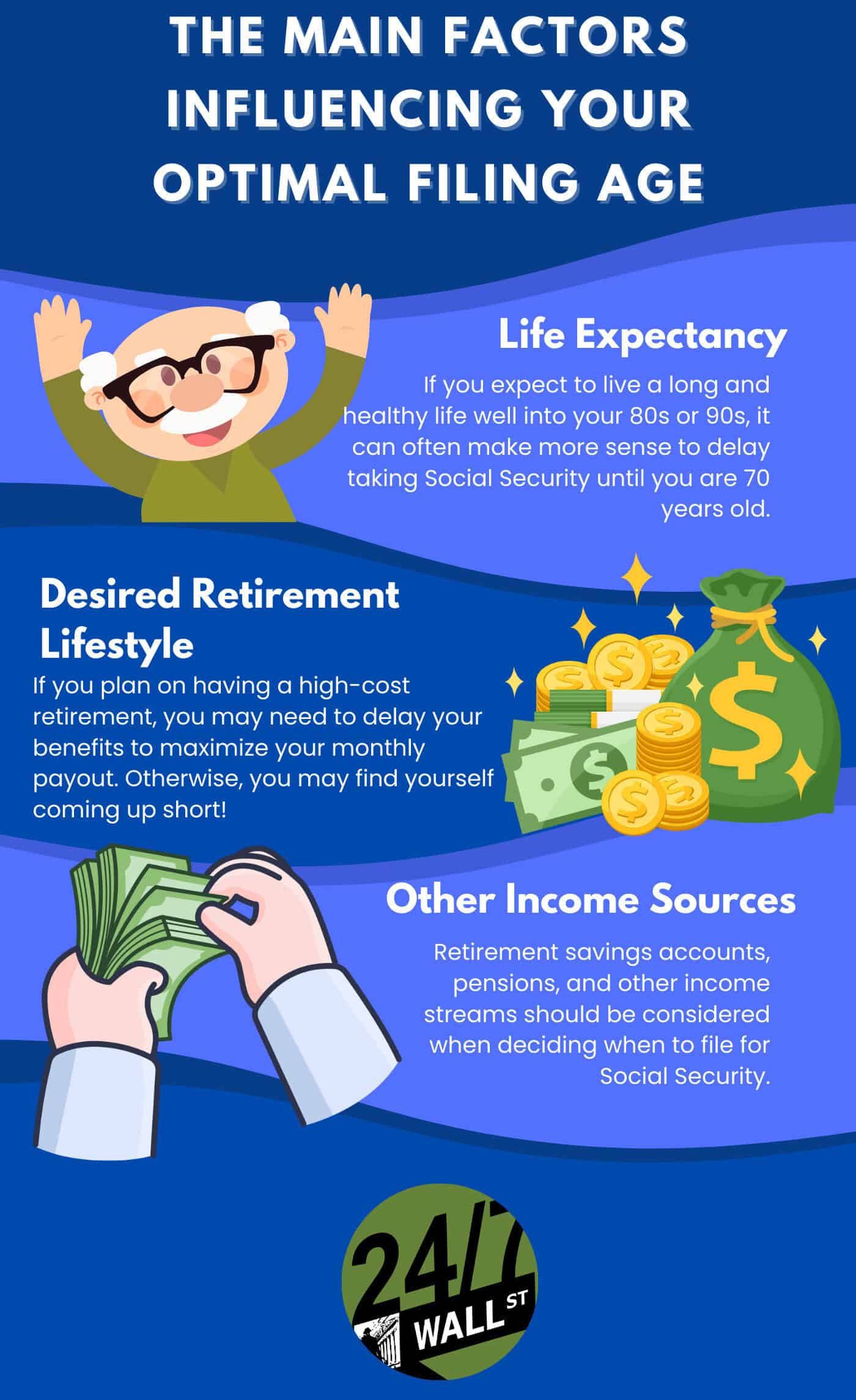Personal Finance
2 in 3 Americans Are Clueless About Arguably the Biggest Benefit of Social Security

Published:
Last Updated:

Amidst ongoing economic uncertainty and a volatile presidential election, you may be concerned that another period of skyrocketing inflation would erode your Social Security benefits.
But don’t fret too much. Social Security benefits are protected from inflation through the Cost of Living Adjustment (COLA).
However, many Americans are unaware of this safety net. In fact, 70% of Americans did not know that Social Security benefits are protected against inflation, according to a recent study by The Nationwide Retirement Institute.
So let’s take a closer look.
24/7 Wall St. Insights

The Social Security COLA is based on increases in the Consumer Price Index for Urban Wage Earners and Clerical Workers (CPI-W). This metric measures what workers with modest incomes pay for a basket of basic retail goods and, thus, is an often-cited benchmark for inflation.
Each year, the Social Security Administration (SSA) decides whether the following year’s benefits would include a COLA and how large it would be.
For 2025, the COLA to Social Security benefits will be 2.5%.
So how does the SSA determine the size of the COLA?
If the CPI-W increases by more than 0.1% between the third quarter of the previous year and the third quarter of the current year, the SSA increases Social Security benefits with a COLA. These benefits increase by the same amount as the index.
If movements in the CPI-W are minimal or negative, the SSA doesn’t add a COLA to Social Security payments.
In 2024, the COLA was 3.4%. And in 2023, the COLA reached a historic 8.7% following a period of rampant inflation triggered in part by the economic fallout of COVID-19.
Here are previous adjustments.
In 1980, the COLA peaked at 14.3% to reflect an inflation rate as high as 13.5%.
Social Security benefits were not always adjusted for inflation. Before the 1970s, benefits increased only following the approval of Congress. So for the first few decades of the program, benefit amounts went mostly untouched.
But the 1970s saw unprecedented inflation in the midst of staggering oil prices, the removal of the dollar from the gold standard, and other spikes to the costs of living.
So in 1972, Congress enacted the Social Security COLA. But it wouldn’t take effect until 1975.

You can begin earning your Social Security benefits at age 62. However, your payments would permanently decrease for every month you collect Social Security before reaching your full-retirement age.
The full-retirement age for those born in 1960 or after is 67.
But once you reach your full-retirement age, your benefits increase by 8% for every year you delay earning Social Security payments up until you reach age 70.
So if you have modest savings and can sustain yourself until you reach full-retirement age or 70, you could maximize your benefits.
Here are sources where you may have sizable retirement savings.
Just make sure you understand the tax implications and any potential early withdrawal penalties that may apply to some of these options.
Social Security benefits play and will play a large role in the lives of many Americans. But one could be worried that the purchasing power of these benefits could be eroded by inflation. The SSA aims to mitigate this through its COLA increases. In 2025, Social Security beneficiaries can expect a 2.5% COLA.
Are you ahead, or behind on retirement? For families with more than $500,000 saved for retirement, finding a financial advisor who puts your interest first can be the difference, and today it’s easier than ever. SmartAsset’s free tool matches you with up to three fiduciary financial advisors who serve your area in minutes. Each advisor has been carefully vetted and must act in your best interests. Start your search now.
If you’ve saved and built a substantial nest egg for you and your family, don’t delay; get started right here and help your retirement dreams become a retirement reality.
Thank you for reading! Have some feedback for us?
Contact the 24/7 Wall St. editorial team.